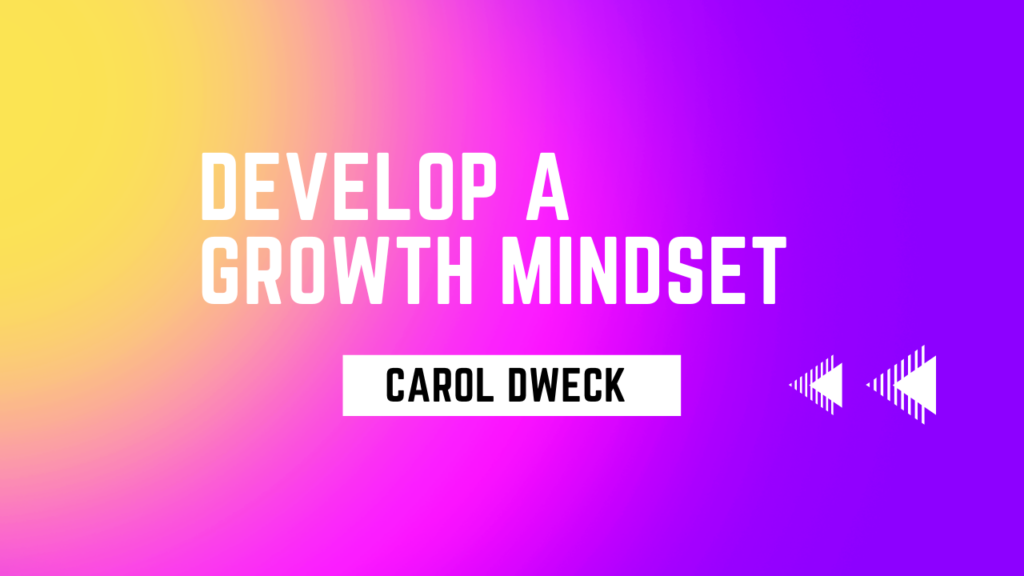Carol Dweck is a world-renowned psychologist who has spent decades studying the concept of mindset. In her book “Mindset: The New Psychology of Success,” she introduces the idea of two different mindsets: fixed and growth.
A fixed mindset is one in which individuals believe their abilities and intelligence are set in stone and cannot be changed. A growth mindset, on the other hand, is one in which individuals believe they can develop their abilities through hard work, dedication, and perseverance.
Here are some tips for developing a growth mindset:
Embrace Challenges
Individuals with a growth mindset see challenges as opportunities for growth and learning. They embrace new experiences and are willing to take risks even if it means making mistakes along the way.
View Failure as Feedback
Instead of seeing failure as a reflection of their ability or intelligence, those with a growth mindset view it as an opportunity to learn and improve. They see failure as feedback that can help them identify areas where they need to focus more attention.
Cultivate Curiosity
Curiosity is an essential trait for developing a growth mindset. Those with a growth mindset approach new situations with an open mind and seek out new knowledge and experiences.
Practice Persistence
Developing a growth mindset takes time and effort. It requires persistence in the face of challenges and setbacks. Individuals with a growth mindset understand that progress may be slow but are committed to putting in the work necessary for long-term success.
Surround Yourself with Positive Influences
The people we surround ourselves with have a significant impact on our beliefs and attitudes. Seek out positive influences who encourage you to grow, learn, and develop your skills.
In conclusion, developing a growth mindset takes practice but can lead to significant personal and professional development over time. By embracing challenges, viewing failure as feedback, cultivating curiosity, practicing persistence, and surrounding yourself with positive influences, you can shift your thinking from fixed to growth-oriented

